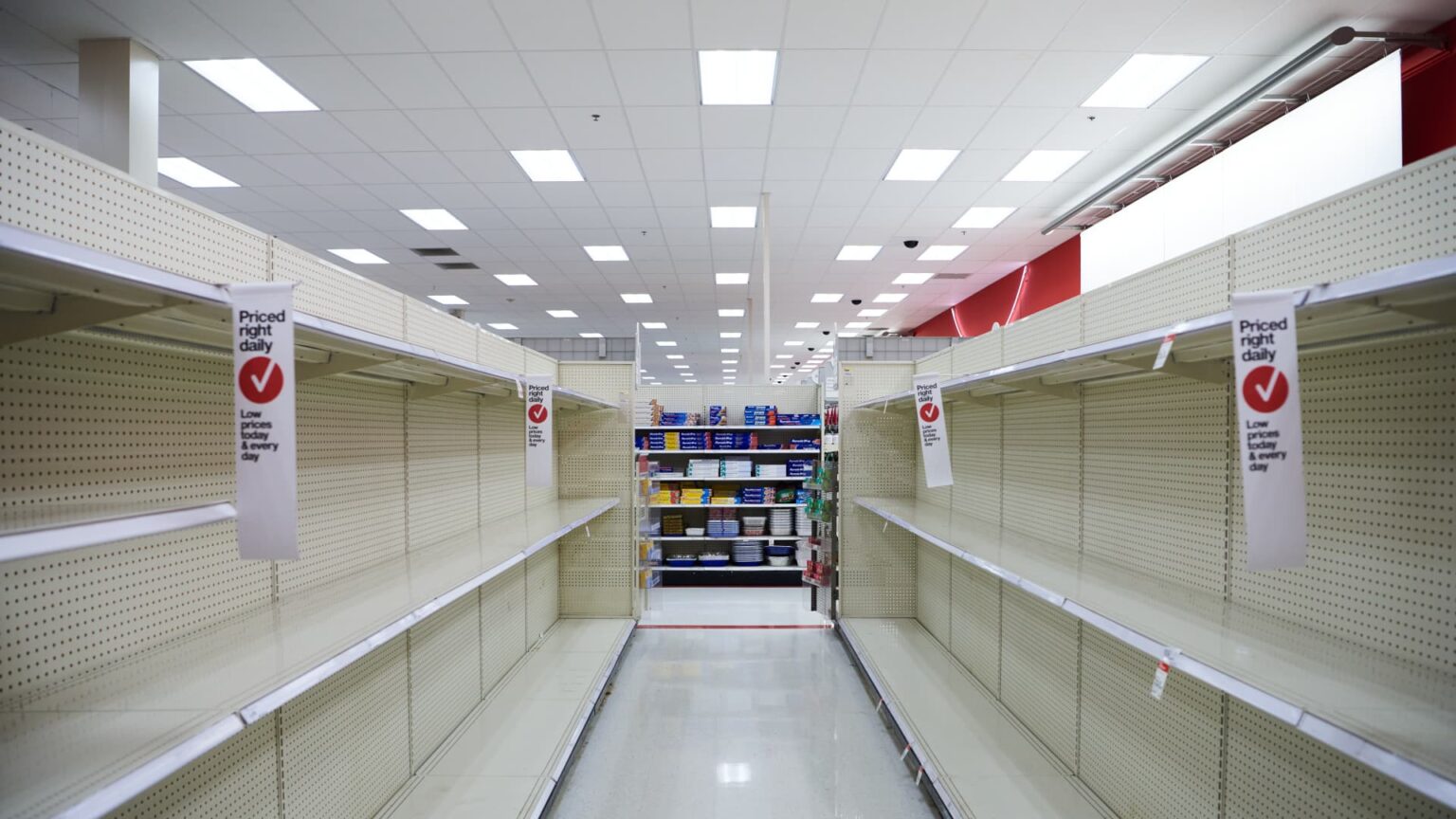The economic impact of the tariffs imposed by the Trump administration will soon become apparent to everyday Americans and lead to a recession this summer, according to Apollo Global Management.
Torsten Slok, chief economist at Apollo, laid out a timeline in a presentation for clients that showed when the impact of tariffs announced by President Donald Trump could hit the U.S. economy. Based on the transport time required for goods to China, U.S. consumers could start to notice trade-related shortages in their local stores next month, according to the presentation.
“The consequence will be empty shelves in US stores in a few weeks and Covid-like shortages for consumers and for firms using Chinese products as intermediate goods,” Slok wrote in a note to clients Friday.
Tariff to recession timeline:
- April 2: Tariffs announced, containership departures from China to U.S. slowing
- Early-to-mid May: Containerships to U.S. ports come to a stop
- Mid-to-late May: Trucking demand comes to a halt, leading to empty shelves and lower sales for companies
- Late May to early June: Layoffs in trucking and retail industries
- Summer 2025: recession
Source: Apollo Global Management
To support the idea that the U.S. economy is on the verge of recession, the presentation also included data that shows new orders for business, earnings outlooks and capital spending plans have all fallen sharply in recent weeks.
The Trump administration has paused some of the tariffs announced on April 2, but has hiked duties even higher on China. Treasury Secretary Scott Bessent acknowledged Monday on “Squawk Box” that the current tariff standoff with Beijing is “unsustainable.” Levies on goods from China are now subject to a 145% rate.
China is not the only source of consumer goods, but it does have a large role in the U.S. economy. The U.S. imported $438.9 billion of goods from China in 2024, according to the Office of the United States Trade Representative, putting it right behind Mexico and above Canada on the list of trading partners by that metric.
While many on Wall Street are now saying that a recession for the U.S. is likely in 2025, Slok’s predictions are toward the more pessimistic side. Bessent has said the administration expects a “detox period” for the economy due to the trade negotiations but not necessarily a recession.
There is also some evidence of a “pull-forward” in orders from before the tariffs were announced, which could keep goods on the shelves for longer than the Apollo timelines sets out.
“Don’t expect empty shelves yet — [year to date] stock is still up, and demand is slowing,” Bernstein analyst Aneesha Sherman said in a note to clients Monday.
— CNBC’s Michael Bloom contributed reporting.
Read the full article here


